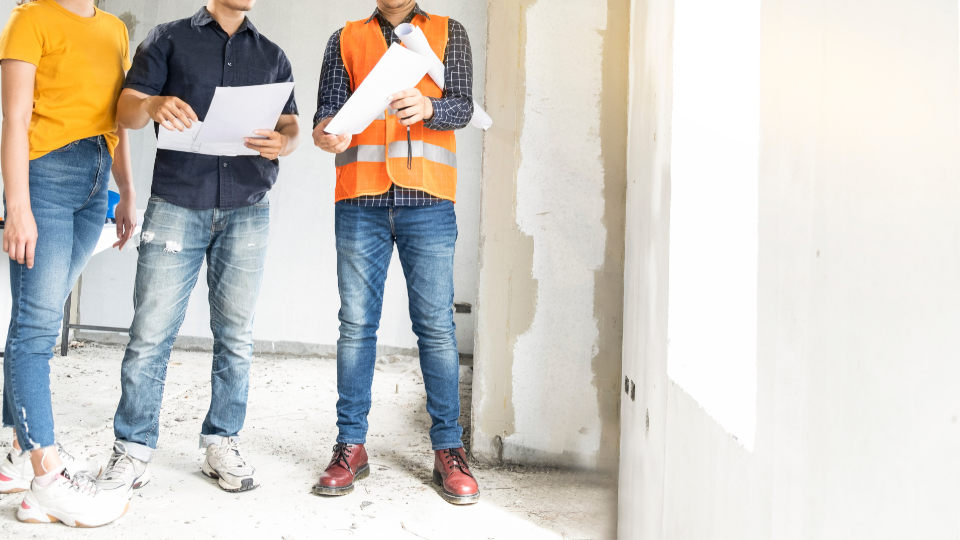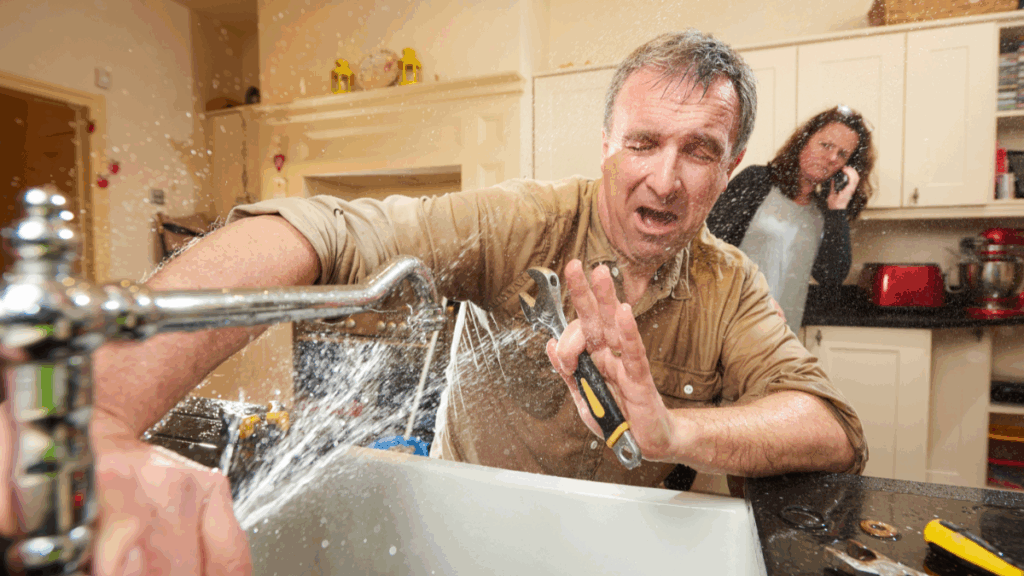Surprising Things That Fail a Home Inspection and How to Prepare for Them
Home inspections are a critical part of the buying and selling process. They provide a detailed assessment of a property’s condition, helping buyers make informed decisions and sellers address potential issues before listing. Understanding common inspection issues can save you from unpleasant surprises, costly repairs, and lost deals. This blog post will explore the most frequent problems found during home inspection, provide an in-depth cost breakdown, and highlight why using a home services app like House Fly to find home inspection service providers will ensure an efficient, hassle-free experience. Continue reading to learn more about common things that fail a home inspection. Click here to learn more about House Fly’s home inspection services.
Common Issues That Fail a Home Inspection
Foundation Issues
Foundation problems are among the most severe issues that can fail a home inspection. Signs include visible cracks, uneven settling, and water infiltration. These issues can compromise your property’s structural integrity, leading to expensive repairs. Fixing foundation problems is critical for ensuring the safety and longevity of your home.
Roof Problems
A damaged roof can lead to various issues, including leaks, water damage, and mold growth. Inspectors look for missing or damaged shingles, aging materials, and signs of previous repairs. Addressing roof problems early can prevent more extensive damage and costly repairs down the line.
Electrical System Failures
Outdated or faulty electrical systems pose significant safety risks. Common issues include outdated wiring, faulty electrical panels, and insufficient grounding. These problems can lead to code violations and are a potential fire hazard. Ensuring your electrical system is up-to-date is crucial for safety and compliance.
Plumbing Defects
Leaky pipes, outdated materials like polybutylene, and water pressure issues are common plumbing defects. These problems can cause water damage, mold growth, and long-term structural damage. Regular maintenance and timely repairs can help keep your plumbing system in good shape.
HVAC System Issues
Malfunctioning HVAC systems affect indoor comfort and energy efficiency. Inspectors check for poor maintenance, outdated units, and air quality concerns. Regular servicing and updates can improve your HVAC system’s performance and longevity.
Mold and Water Damage
High moisture levels and visible mold are red flags during inspections. These issues pose health risks and require costly remediation. Identifying and addressing moisture sources can prevent mold growth and protect your property’s structural integrity.
Pest Infestations
Evidence of termites, rodents, or other pests can fail an inspection. Pest infestations compromise your home’s structure and require professional treatment. Regular pest control measures can help prevent infestations and maintain your property’s integrity.
Poor Drainage and Grading
Improper drainage can lead to foundation or basement damage. Inspectors look for signs of water pooling, erosion, and inadequate grading. Addressing drainage issues can prevent flooding and protect your home’s foundation.
Environmental Hazards
Environmental hazards like asbestos, radon, and lead-based paint are serious concerns. Testing and mitigation options are available to address these hazards. Ensuring your home is free from environmental hazards is essential for health and compliance.
Most Expensive Repairs Commonly Found During a Home Inspection
Foundation Repairs
Foundation repairs can range from $2,000 to $10,000 or more, depending on the severity. These repairs are crucial for maintaining structural integrity and preventing further damage.
Roof Replacement
Roof replacement costs vary between $5,000 and $15,000, based on size and material. Neglecting roof issues can lead to extensive water damage and mold growth, making timely replacement essential.
Electrical Rewiring
Rewiring an entire home can cost between $2,500 and $10,000. Updating electrical systems is necessary for safety, compliance, and preventing potential fire hazards.
Plumbing System Overhaul
Major plumbing updates can cost between $1,500 and $5,000. Modern plumbing systems improve water efficiency, reduce the risk of leaks, and enhance overall property value.
HVAC System Replacement
Replacing an HVAC system can cost between $4,000 and $12,000, depending on the unit size. A new HVAC system improves energy efficiency, indoor comfort, and property value.
Mold Remediation
Mold remediation costs range from $1,500 to $6,000, depending on the damage extent. Addressing mold issues is essential for health and maintaining your property’s structural integrity.
The Average Cost of a Home Inspection
National Average
The average cost for a standard home inspection ranges from $300 to $500, depending on the home’s size and location. This fee provides a comprehensive assessment of your property’s condition.
Additional Testing Costs
Specialized inspections, such as mold, radon, or termite, typically range from $50 to $300 per test. These tests address specific concerns and provide a more detailed property assessment.
Factors Impacting Inspection Costs
Home size, age, location, and additional inspection requirements can increase costs. Understanding these factors can help you budget for a thorough inspection.
The Benefits of Using a Home Services App Like House Fly for Home Inspection Services
Convenient Booking
House Fly makes it easy to compare and book professional home inspectors based on profiles, reviews, and availability. This convenience ensures you find the right inspector for your needs.
Transparent Pricing
With clear, upfront pricing and no hidden fees, House Fly helps you budget for your inspection. Knowing the costs in advance eliminates surprises and makes planning easier.
Vetted Professionals
House Fly connects you with licensed and certified inspectors, ensuring high-quality service. Trusting your inspection to vetted professionals provides peace of mind and reliable results.
On-Demand Scheduling
Flexible scheduling options accommodate your timeline, making booking a home inspection hassle-free. House Fly’s on-demand scheduling ensures you find an inspector when you need one.
Why You Should Use House Fly to Book a Professional Home Inspection
Quality Assurance
All inspectors on House Fly are background-checked, certified, and reviewed by past clients. This quality assurance ensures you receive a thorough and accurate inspection.
Local Expertise
House Fly connects you with inspectors familiar with local regulations and building codes. This expertise ensures your inspection meets all necessary standards.
One-Stop Shop for Home Services
House Fly offers a comprehensive range of services, from inspections to repairs. This one-stop-shop approach makes addressing any issues identified during the inspection easy.
Support for Small Businesses
House Fly helps connect independent inspectors with clients, fostering local business growth. Supporting small businesses strengthens the community and provides personalized service.
Peace of Mind
Booking through House Fly ensures your property is thoroughly inspected and any issues are documented. This peace of mind allows you to make informed decisions about your home.
Download the House Fly App to Book Home Inspection Services
Understanding common inspection issues and their potential costs is critical for buyers and sellers. A reliable home inspection provides valuable insights, protects your investment, and ensures property safety. Using professional home inspectors, like those available through House Fly, offers numerous benefits, including convenience, transparent pricing, and quality assurance.
Download the House Fly app today to book a certified home inspector and ensure your property is safe, compliant, and market-ready. Don’t leave your investment to chance—trust House Fly for all your home inspection needs.
















